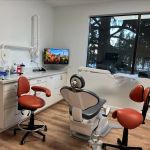Introduction to Dry Mouth During Sleep
If you've ever woken up with a dry mouth or a sore throat, you're not alone. Dry mouth during sleep, also known as "xerostomia," is a common issue that many people face. It occurs when the salivary glands don't produce enough saliva to keep your mouth moist. This can lead to discomfort, difficulty speaking, and a dry, sticky feeling in the mouth. But what causes it, and how can you prevent it? In this article, we'll dive into the causes of dry mouth during sleep and share practical tips to prevent it from disrupting your night’s rest.
1. Why Does Dry Mouth Occur During Sleep?
Understanding the causes of dry mouth is the first step in addressing the problem. Some of the most common reasons include:
- Dehydration: When you’re not drinking enough water during the day, your body can become dehydrated, leading to reduced saliva production at night.
- Mouth Breathing: Breathing through your mouth, especially while sleeping, can dry out your mouth. This often occurs if you have nasal congestion or sleep with your mouth open.
- Medications: Certain medications like antihistamines, antidepressants, and blood pressure medications can reduce saliva flow and contribute to dry mouth.
- Medical Conditions: Conditions such as diabetes, Sjogren’s syndrome, and sleep apnea can cause dry mouth symptoms.
2. How Can You Prevent Dry Mouth While Sleeping?
Now that we understand the causes, let's explore the solutions. Here are some effective ways to keep your mouth hydrated and prevent dry mouth from affecting your sleep:
2.1 Stay Hydrated Throughout the Day
The simplest way to avoid dry mouth is by ensuring you stay hydrated throughout the day. Drink plenty of water, especially in the hours leading up to bedtime. This will help keep your saliva production at optimal levels.
2.2 Use a Humidifier in Your Bedroom
If you tend to wake up with a dry mouth, it could be due to dry air in your bedroom. Consider using a humidifier at night to add moisture to the air. This can prevent your mouth from drying out, especially if you breathe through your mouth while sleeping.
2.3 Breath Through Your Nose
Making a conscious effort to breathe through your nose can reduce the risk of dry mouth. If you suffer from nasal congestion, try using saline sprays or nasal decongestants before bed to open up your airways.
2.4 Avoid Caffeine and Alcohol Before Bed
Caffeine and alcohol can lead to dehydration and dry mouth. Both are diuretics, meaning they cause your body to lose water, leading to less saliva production. Avoid these beverages in the hours before bed to ensure your mouth stays moist overnight.
2.5 Use a Dry Mouth Mouthwash
Specially designed mouthwashes for dry mouth can help to stimulate saliva production. These products are formulated to be alcohol-free and hydrating, providing relief from the dry, sticky feeling often experienced during the night.
2.6 Chew Sugar-Free Gum
Chewing sugar-free gum can help stimulate the production of saliva, which is a natural way to prevent dry mouth. If you experience dry mouth during the day, keeping a pack of sugar-free gum handy can offer relief.
3. Remedies for Severe Cases of Dry Mouth
If the above tips don’t completely solve your dry mouth issues, there are additional treatments to consider:
- Saliva Substitutes: There are saliva substitutes available in the form of sprays, gels, or lozenges that can provide temporary relief.
- Prescription Medications: If your dry mouth is caused by an underlying health condition or medication, consult your doctor. There are prescription medications that can help increase saliva production.
4. The Importance of Oral Care for Preventing Dry Mouth
Good oral hygiene is essential in preventing and managing dry mouth. Brushing your teeth twice a day, flossing regularly, and visiting your dentist for checkups can help ensure that your mouth remains healthy. A dry mouth can also lead to bad breath, cavities, and gum disease, so it's important to take care of your oral health to prevent further complications.
5. Personal Story: How I Overcame Dry Mouth During Sleep
For years, I struggled with dry mouth during the night. I would wake up feeling like I hadn’t had a sip of water in days. It wasn't until I realized I had a mouth-breathing habit that I started seeing improvement. I invested in a humidifier, worked on breathing through my nose, and made a point to drink more water throughout the day. Slowly but surely, my dry mouth symptoms lessened. While it wasn't an overnight fix, the combination of these small changes drastically improved my quality of sleep and my overall oral health.
6. Conclusion: Take Action to Prevent Dry Mouth
Dry mouth during sleep is a common problem, but it doesn’t have to be a permanent one. By staying hydrated, using a humidifier, and practicing good oral hygiene, you can reduce the risk of waking up with a dry mouth. If you're still struggling with dry mouth despite trying these remedies, don’t hesitate to consult with your healthcare provider to find a solution that works for you.







 Uptown Dental4.0 (73 review)
Uptown Dental4.0 (73 review) Gentle Dental Downtown Portland4.0 (123 review)
Gentle Dental Downtown Portland4.0 (123 review) Mary Fares Mallouhi, DDS4.0 (78 review)
Mary Fares Mallouhi, DDS4.0 (78 review) Harmony Dental Health4.0 (259 review)
Harmony Dental Health4.0 (259 review) The Modern Endodontist: Yarah Beddawi DDS | Root Canal Specialist in Mountain View and Los Altos4.0 (200 review)
The Modern Endodontist: Yarah Beddawi DDS | Root Canal Specialist in Mountain View and Los Altos4.0 (200 review) Grzybicki Family Dentistry0.0 (0 review)
Grzybicki Family Dentistry0.0 (0 review) The Importance of Oral Health Education During Pregnancy for a Healthy Pregnancy
The Importance of Oral Health Education During Pregnancy for a Healthy Pregnancy Best Tips for Brushing Your Teeth Properly for Healthy Gums: Essential Techniques for Oral Health
Best Tips for Brushing Your Teeth Properly for Healthy Gums: Essential Techniques for Oral Health Why Skipping Dental Checkups Can Lead to Bigger Oral Health Problems
Why Skipping Dental Checkups Can Lead to Bigger Oral Health Problems Advantages of Porcelain Dental Restorations
Advantages of Porcelain Dental Restorations How Can Diabetes Cause Tooth and Gum Problems? Preventing and Managing Oral Health Issues
How Can Diabetes Cause Tooth and Gum Problems? Preventing and Managing Oral Health Issues Healthy Habits for Promoting Good Oral Health and Hygiene: Tips for a Healthy Smile
Healthy Habits for Promoting Good Oral Health and Hygiene: Tips for a Healthy Smile